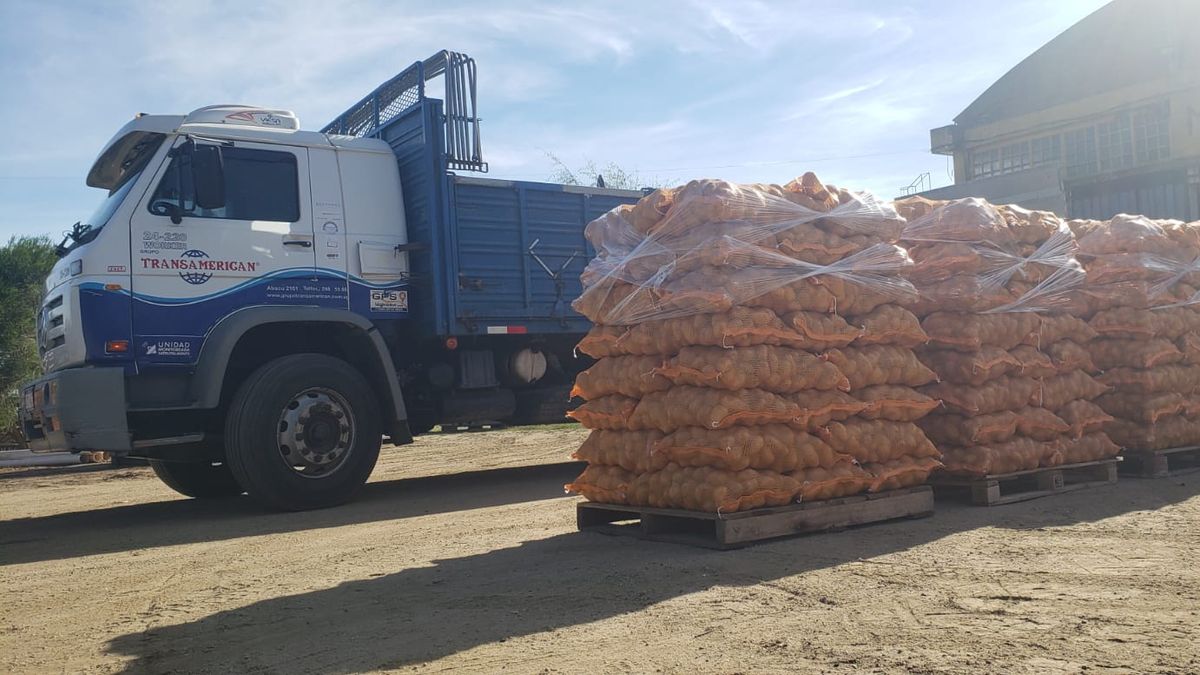About 10 trucks from Brazil entered the Uruguay with 250 tons of imported potatoes from that country in recent weeks, with the aim of guaranteeing the supply and avoiding a disproportionate increase in local prices, two points compromised by the effects of the drought on local crops.
This is an unprecedented event, given that historically Uruguay produces the potato that it consumes, which 90% is grown in San Joséone of the departments most affected by the water deficit. Most of the crops of this vegetable were severely damaged by the lack of rainfall in recent months.
Therefore, at the proposal of Ministry of Livestock, Agriculture and Fisheries (MGAP), the National Association of Potato Seed Growers (Ansepa) began importing potatoes from Brazil, as confirmed by its president Fernando Miettoto “complement” it with national production.
“White potatoes are being imported from Brazil, but It is also being traded in companies in Argentina”, confirmed the engineer in dialogue with National Radio. The 250 tons entered Uruguay come from productions in the Brazilian state of Rio Grande do Sul and, according to the head of the agrarian organization, they are good quality”.
In this way, Ansepa, through which the 100% of imports, seeks to ensure the supply of the product in Uruguayan greengrocers and gondolas and, in turn, keep its price stable.
In the last report of the National Statistics Institute (INE)the potato registered a 20.17% increase in March, one of the foods that became more expensive that month. Based on data from the Metropolitan Agri-Food Unit (UAM)this Monday, April 10, the price of the brazilian potato peaked at 56 pesos per kiloeven cheaper than national popewith values up to 60 pesos.
How the national production complementation system will work
“Producers maintain our national offer. and responsibly we are going to cover what we may be missing with imported production. We are going to cover, in an orderly manner, what is missing to ensure the supply”, explained Mietto last week in conversation with Radio Mundo.
According to the head of the agrarian entity, potatoes planted between the end of December and around January 15 are the ones that suffered “the greatest impact” and, within the total planting in January, “will mean approximately 10 or 12%”.
Meanwhile, the proposal agreed with the MGAP will imply a window period of about “one month or less”and depending on what growers start harvesting in the coming weeks.
Ansepa was organized into work teams, where some producers are part of the purchasing, receiving and logistics, and cold, others accompany the entire sales process. “We seek to favor the entire chain,” said Mietto.
This is the first time that the agricultural portfolio offers producers to participate in the process of importing the product. And actually, 20 companies are on the import list and “there is some more to be added”, as he stated to Underlined engineer Mietto, who also invited producers from the east, center and north of the country to join the initiative, whether or not they are members of the association.
Source: Ambito




